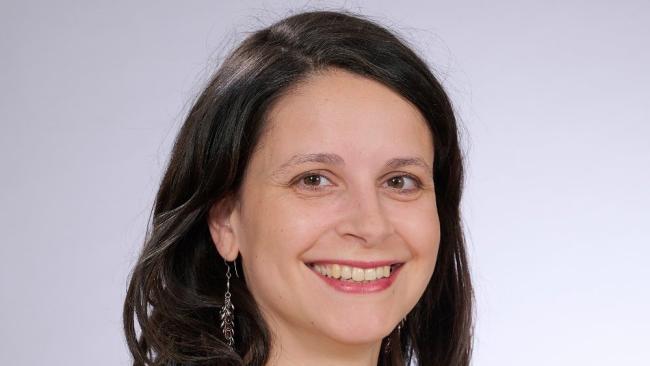
Meet the mentor: Marina Bansard (2004)
╠└═╖╠⌡╘¡┤┤ has an innovative Careers and Mentoring Programme matching current students and recent alumni with experienced alumni and leaders in their fields. One of our mentors, Marina Bansard (2004), tells us more about her career, her mentoring experience, and her advice for others about to embark on the mentoring process.
Can you tell us more about yourself?
IΓÇÖm Marina, an international communications expert who didnΓÇÖt know what to do with her MML degree at first! Like many fellow MML students, I still wasnΓÇÖt sure what I wanted to do career-wise when I finished my degree. Studying languages opens many avenues, since it gives you the chance to learn about different cultures and live abroad for a year. For me, there seemed to be almost too much choice when I graduated in 2007! Luckily for me, the MML Faculty at Cambridge had provided excellent support for second year students looking for how to spend their Year Abroad. At the time, there was a small office packed with paper files containing other studentsΓÇÖ accounts of their own Years Abroad. I spent an afternoon sifting through them, and soon decided that IΓÇÖd prefer to work rather than study during the year. This brought me to my first real experience of having a mentor. I applied and was accepted to work alongside the Paris bureau chief of The Independent, at the time one of the UKΓÇÖs leading broadsheet newspapers. The journalist in question, John Lichfield, had been accepting Cambridge MML students as his Editorial Assistant for some years. My interest was sparked after reading the positive experiences they described. I worked with John for around nine months, helping him monitor the French press, spotting interesting news stories, setting up interviews and so on. I learned what makes a topic newsworthy, and how to pitch to the desk editors over the phone. John also showed me how to write and structure a news article. I had about 12 articles published in the print edition ΓÇô seeing my name in print made me feel very proud. After working at the Independent, I spent a month working alongside the former BBC bureau chief Caroline Wyatt. This was another fantastic experience, since Caroline is a natural mentor. I learned so much within that month ΓÇô it was an exciting one as it was the year that France went to the World Cup Final and Zidane did his famous headbutt. Needless to say, I got a good taste of a busy newsroom the morning after!
What was it like returning to the UK after your experiences abroad?
Coming back to Cambridge after my Year Abroad was a shock at first. It seemed so quiet, and I wished I were back in Paris. However, what helped me was having some fantastic tutors who were also like mentors to me, supporting me in completing my two dissertations and providing constructive feedback. I stayed in touch with them well beyond graduation. I ended up spending about 10 months in New York after my degree, doing internships in the art world and various part-time jobs. Returning to London in 2008, just before the financial crisis, was not easy at all. I still didnΓÇÖt know what to do with my career! Again, I had some fantastic support from the Cambridge Careers Office and fellow alumni who offered me tips and provided contacts. I got my first job in 2008 in communications, having responded to a job advert after a series of unpaid internships in journalism. The job was at the Art Fund, a leading UK art charity. I have stayed in communications field ever since. I moved back to Paris in 2011 and am still here now. I currently work as Director of Communications of Stop Hunger, the non-profit arm of a major international company, Sodexo.
Why would you like to be a mentor?
I think that my early journalistic experiences provided a solid foundation for my communications career. I am always grateful for the mentors I have had on the way and do what I can to ΓÇ£give backΓÇ¥ by helping others too. I recently supported a student through the Cambridge Alumni service and helped her find an internship at the Organisation for Economic Development and Cooperation (OECD) in Paris, connecting her with a former colleague. I have also stayed in touch with former team members and am happy to provide them career guidance and references when needed.
Why do you think mentoring is so important and how can you help?
Establishing your career can be hard, but itΓÇÖs exciting too! And we all go further when we have the support and guidance of others whoΓÇÖve been through similar experiences before. IΓÇÖd be particularly happy to support students or alumni who have studied MML or another arts subject, as I know how daunting it can be to choose a career path after completing such a varied and rich curriculum. Feel free to connect with me if:
ΓÇó YouΓÇÖre looking for a career in communications or Diversity, Equity and Inclusion
ΓÇó YouΓÇÖre looking to work in France and need tips on the corporate and/or non-profit world
ΓÇó You need support writing/editing your CV or cover letter
Marian can be contacted on the College's mentoring and networking platform.
The views and opinions expressed in this article belong to Marina Bansard (2004).





